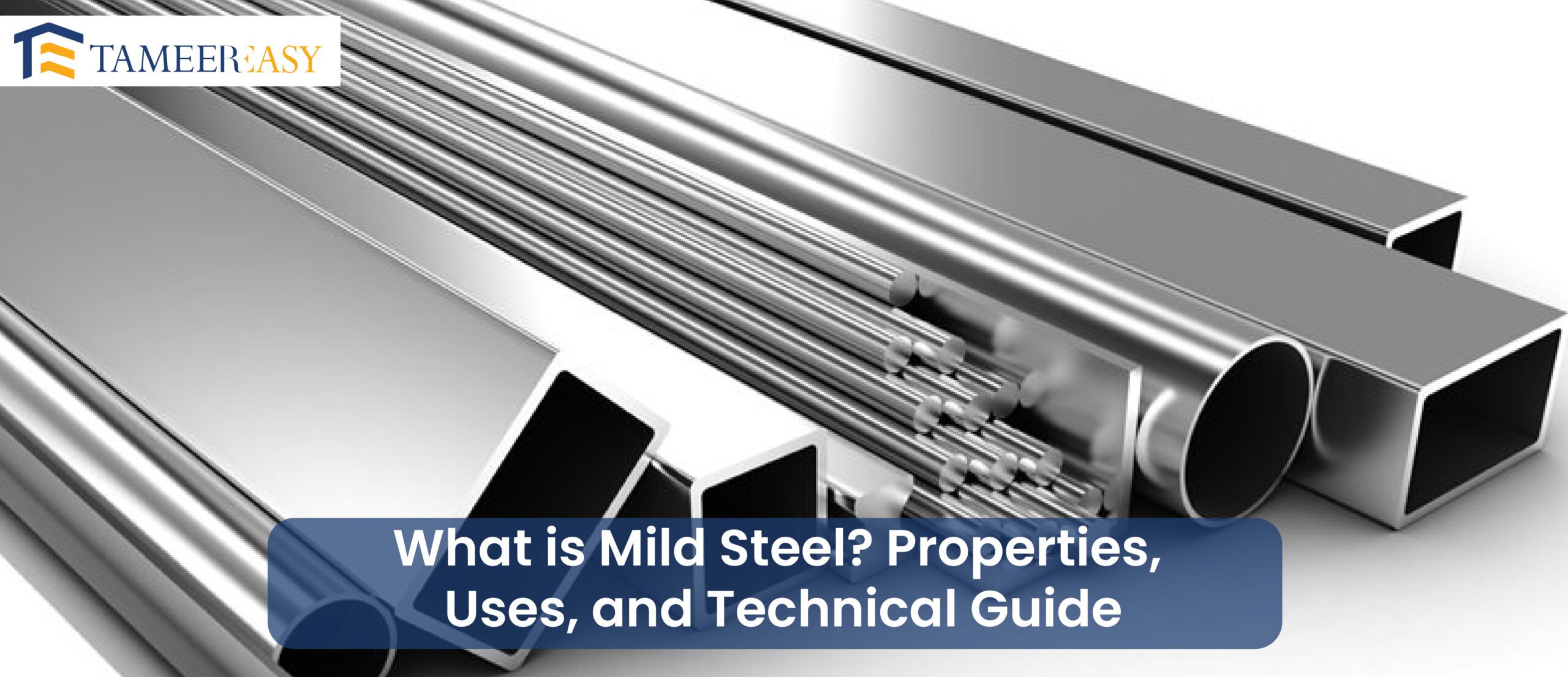What is Mild Steel? Properties, Uses, and Technical Guide
Mild steel, among the various types of steel, is perhaps the most popular around the world. It is used for all sorts of applications from erecting high rises to fabricating ordinary household tools. Consequently, this versatile alloy has very much become a mother material for industries. In this guide, we would consider breaking down ‘what mild steel is, its characteristics, uses, and technicalities’ so that you should indeed understand why it became the most sought-after material.
Understanding Mild Steel
Mild steel, or low-carbon steel, is an alloy consisting of mostly iron and only a small amount of carbon, usually from around 0.05% to 0.25%. It has, thus, very little value of carbon, such that this results in a material that is soft, ductile, and less difficult to manipulate than other steels. This type of steel is quite different from stainless steel in so far as it does not have chromium in high amounts, hence it tends to rust when left unprotected.
But the best in economy and versatility is why it is widely used in many industries like construction, automotive, furniture, pipelining, and general fabrication.
Mild Steel Versus Other Types of Steel
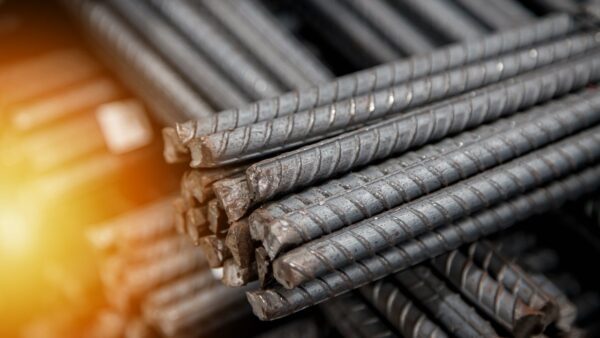
Compared to ordinary carbon steel, the most significant difference with this steel is in carbon content. Harder but less malleable, plain carbon steel gains its characteristics from being packed with more carbon content than the mild one, the anvil of the welding, cutting, and shaping industries
This makes it a favorite choice of material for purposes where shaping and malleability are more essential than hardness.
Important Characteristics of Mild Steel
To know why mild steelhas become a staple in industries, some of its most prominent characteristics are discussed below:
1. Strength and Ductility
Mild steel possesses a wonderful combination of strength and ductility. While it has lesser hardness than high-carbon steel, it still possesses adequate tensile strength for construction and fabrication work. The property of ductility allows it to bend and not break, thereby suiting best for structures under dynamic loading.
2. Welding and Workability
An additional mark in favor of mild steel is that it is weldable. Again, due to this low carbon content, it has very little chance of cracking when welded; therefore, it is a fabricator’s choice. It is easily cut, drilled, and formed, using standard plumbing tools and commercial machinery.
3. Magnetic Properties
Mild steel is ferromagnetic, and it can be magnetized. Due to this characteristic, it is applied in electrical devices, motors, and generators.
4. Affordability
In comparison to stainless steel or alloy steel, mild steel is much more affordable. Its availability in large quantities ensures competitive steel rate in Pakistan today, thus being an affordable option for large projects.
5. Susceptibility to Corrosion
The biggest disadvantage of mild steel is that it rusts when it comes in contact with moisture. Galvanization, painting, or powder coating are widely applied for protecting it and extending its life.
Applications of Mild Steel
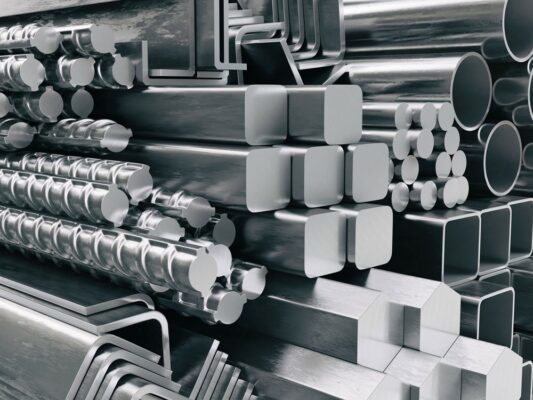

The variety of mild steel products in the market proves its applicability. Among the most widespread applications are:
Construction – Reinforcing bars, beams, angles, and sheets for use in buildings and bridges.
Automotive Industry – Car chassis, chassis, and engine parts.
Pipelines – Water and gas pipelines because of its ductility and welding convenience.
Furniture and Fixtures – Office furniture, frames, and railings.
Home Tools – Utensils used on a daily basis such as nails, screws, and kitchen appliances.
Electrical Use – Transformer and motor components owing to its magnetic characteristics.
Fundamentally, the bulk of products made of mild steel is the pillar of contemporary infrastructure and industry.
Brass & Mild Steel Products
In most instances, producers mix brass & mild type products for technical purposes. Brass may be corrosion-resistant and beautiful, but it has mild specifications, which brings structure strength. Both of them can be utilized in fittings, hardware, and ornamented parts where strength as well as design is essential.
Mild Steel in Pakistan
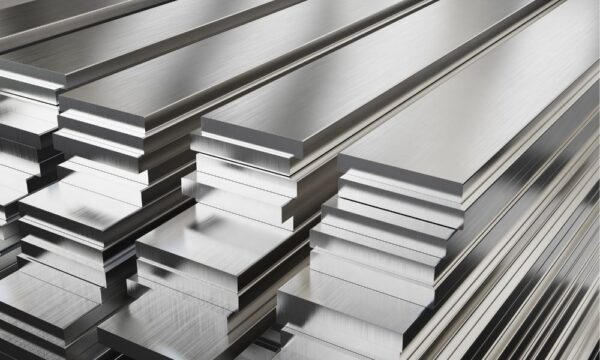

Pakistan is experiencing an increasing need for steel because of urbanization and infrastructure growth at a fast rate. Various units steel plant in Pakistan are manufacturing quality steel for both local and export purposes. With unstable global markets, steel price in Pakistan tends to fluctuate, impacting building expenses extensively.
For anyone monitoring expenses, verifying the latest steel rate in Pakistan today is imperative before the initiation of a new building or production project.
Finding Mild Steel Suppliers
If you’re searching for mild steel suppliers near me, you’ll find many local and international providers offering sheets, plates, bars, and coils in various sizes. Reliable suppliers ensure quality assurance, standardized testing, and competitive pricing. When choosing a supplier, always verify their certifications, product range, and after-sales services.
Check out the Tameer Easy store for the best steel products in Pakistan. Visit the online store today and grab the best deals near you.
Technical Guide to Mild Steel
For engineers, fabricators, and builders, understanding the technical specifications of this steel is crucial:
- Density – Around 7.85 g/cm³.
- Tensile Strength – Roughly 400–550 MPa.
- Melting Point – Around 1450°C – 1520°C.
- Yield Strength – 250 MPa (grade dependent).
- Hardness – Relatively soft in comparison to medium and high-carbon steels.
Mild steel is also graded based on mechanical properties and chemical composition. Some of the common standards used are ASTM, BS, and IS codes.
Buy Construction Material Online
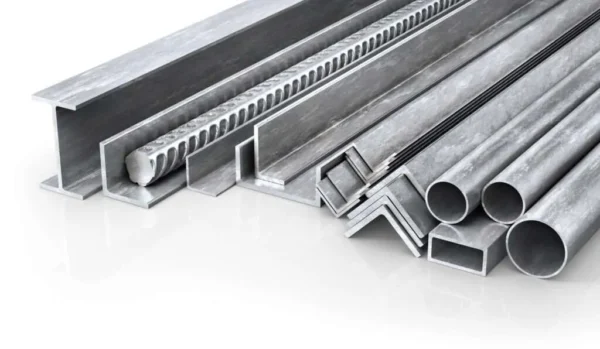

Need trusted construction material at reasonable prices? Purchase top-quality construction material from Tameereasy store. Tameereasy not only provides steel and steel products but also delivers reliable construction services through its official website. Enabling Contractors, Builders, and Homeowners to Get Everything in One Place.
Final Thoughts
Mild steel is still among the most important materials in construction and manufacturing industries globally. Its strength, low cost, and good workability enable this material to sit well in almost any project: from skyscrapers to simple household tools. Knowing what this steel is all about, i.e., its properties, uses, and market trends, can assist in making intelligent decisions as far as procuring steel for your own purposes is concerned.
If you compare plain carbon steel vs mild steel; about to buy brass & mild stuff; and are tracking the steel price in Pakistan, strong knowledge of mild one’s technical & commercial properties will underlie the right decision for your projects.


